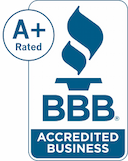Alcohol & Drug Rehab Center Near Fort Worth
Fort Worth is the 5th-largest city in Texas and the 13th-largest city in the United States. Like most American cities, Fort Worth has many residents struggling with drug and alcohol addiction.
If you or a loved one has lost control of their substance use, this page provides information on addiction treatment options near Fort Worth, what to look for when choosing a Texas rehab, local substance abuse statistics, and more.
Types of Addiction Treatment Near Fort Worth
Our different types of addiction treatment include:
- Medical Detox. Withdrawal can be very uncomfortable and, in some situations, dangerous. Medical detox uses medical interventions to ease symptoms and prevent complications to promote patient safety and prevent relapse.
- Residential Rehab. Residential programs offer 24/7 care to patients that includes living accommodations, prepared meals, and full days of treatment programming. Residential treatment is ideal for creating an immersive treatment environment with a great deal of built-in structure.
- Outpatient Rehab Treatment. Outpatient programs differ from residential or inpatient programs. These programs offer daily therapy sessions and programming but without the live-in component.
- Aftercare Programs. Aftercare programs are designed to help patients maintain the relationships and skills gained in rehab. Staff that worked with patients as part of an inpatient or outpatient program help develop aftercare plans so patients have actionable steps to take once their treatment ends.
Insurance Coverage & Costs of Rehab
By law, most health plans must provide coverage for addiction treatment, though the amount of coverage varies from plan to plan. Finding a rehab facility that is in-network with your health insurance plan is an important part of starting drug and alcohol rehab in Fort Worth or surrounding cities.
Greenhouse Treatment Center is in-network with many Texas health insurance carriers like:
For more information about using insurance to pay for rehab and other ways to pay for rehab, call our admissons navigators at . Or you can also quickly and securely confirm your coverage with us by filling out this .
Getting to Greenhouse from Fort Worth, Texas
Greenhouse Treatment Center is a proven treatment provider in the Dallas-Fort Worth area and a short 20-minute drive from downtown Ft. Worth.
Getting to Greenhouse from Fort Worth is easy:
- Take TX-280 Spur to I-30 E toward Dallas.
- Take the exit toward Ball Park Way N.
- Continue on E Copeland Road.
- Turn left onto Six Flags Drive.
- Continue onto 107th Street.
- Make a U-turn at E Avenue J.
- Greenhouse Treatment Center will be on the right.
Are You Struggling With Addiction?
Fort Worth, Texas Addiction Statistics
Consider the following statistics related to substance use and misuse in Fort Worth and Tarrant County:
- An estimated 17% of Tarrant County adults aged 18 and up reported binge drinking. For women, this means consuming more than 3 drinks on one occasion, and for men, it means consuming more than 4 drinks on one occasion.1
- Underage drinking is of particular concern, with 1 in 5 minors aged 18–20 reportedly binge drinking in the past 30 days, despite being under the legal age.1
- In 2020, an estimated 237 Tarrant County residents died of alcohol-related causes.1
- The county’s rate of alcohol-induced deaths per 100,000 residents is 10.5, which is slightly lower than the state average of 10.7 and significantly lower than the national average of 13.1.1
- In 2022, there were 5,973 charges of driving while intoxicated (DWI) in Tarrant County, an increase from the 5,449 charges filed the previous year.2
- In 2020, Tarrant County had the third-highest number of accidental drug-related deaths in the state of Texas.3
- In 2021, drug overdoses were the leading cause of accidental deaths in Tarrant County, with a total of 529 fatal overdoses in Tarrant and nearby Denton, Johnson, and Parker counties.4
Our Stats
Learn MoreWhat Makes Us Unique
Industry Accredited, Exceptional Care
Frequently Asked Questions
American Addiction Centers (AAC) is committed to delivering original, truthful, accurate, unbiased, and medically current information. We strive to create content that is clear, concise, and easy to understand.
While we are unable to respond to your feedback directly, we'll use this information to improve our online help.



